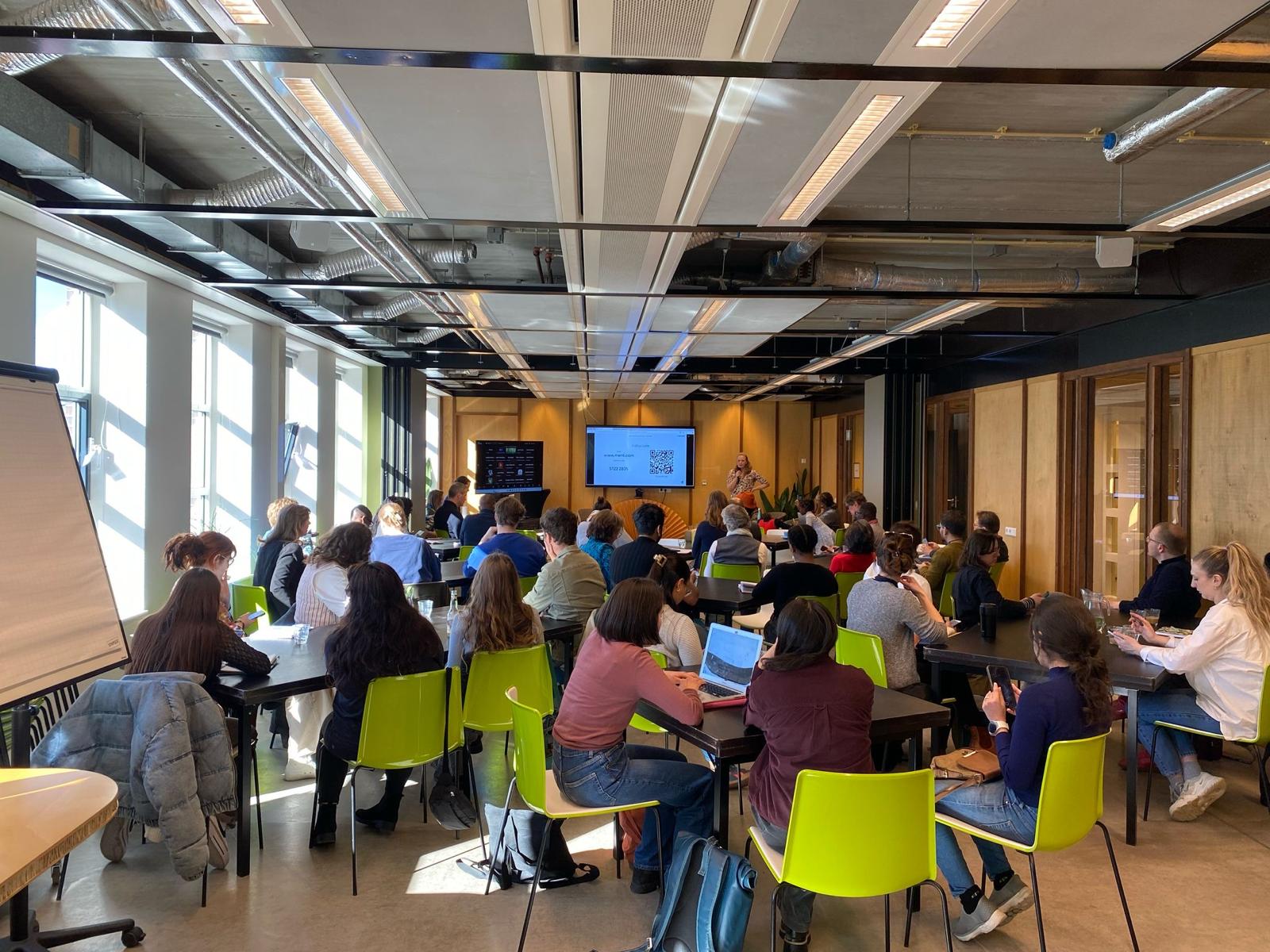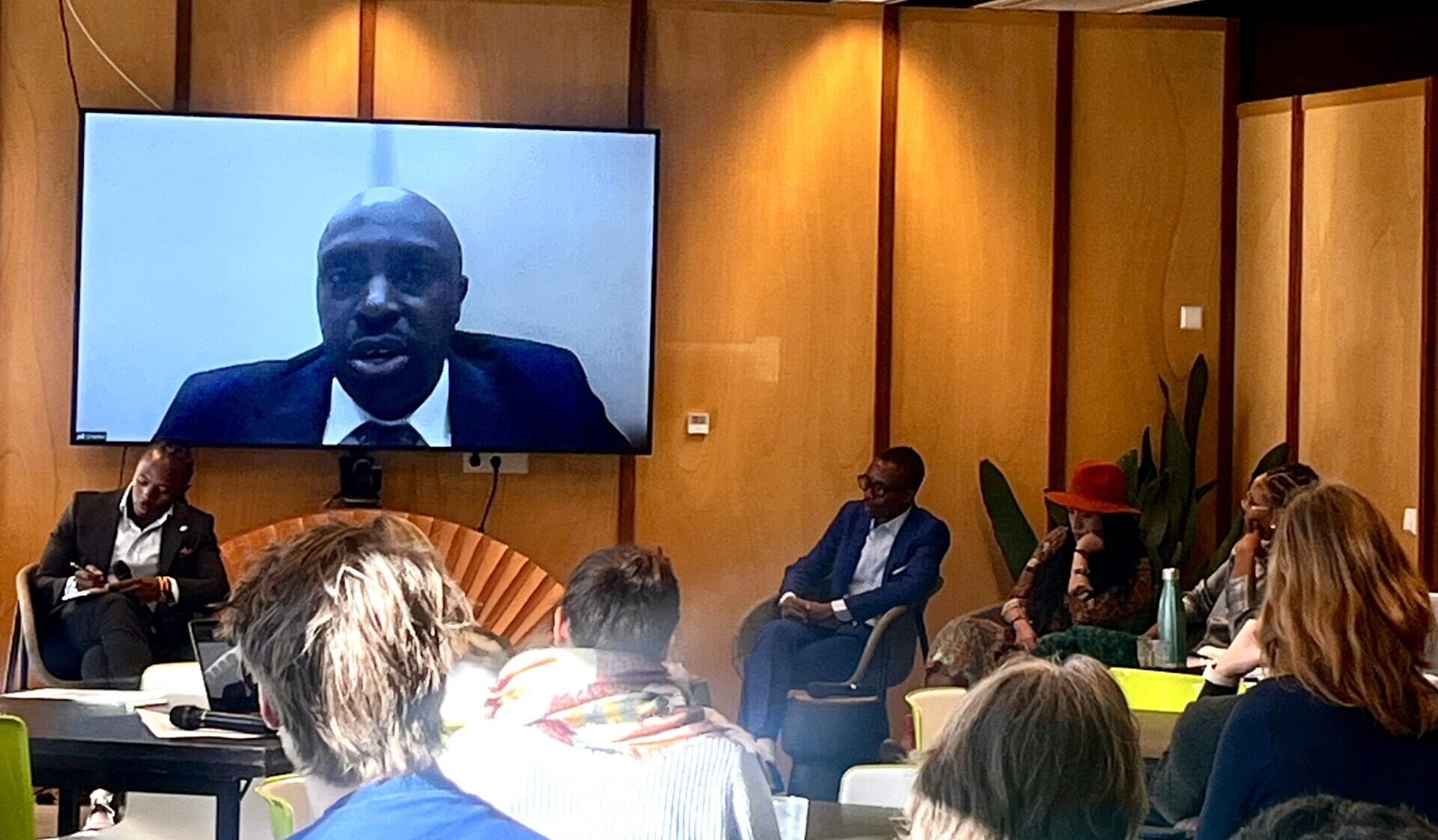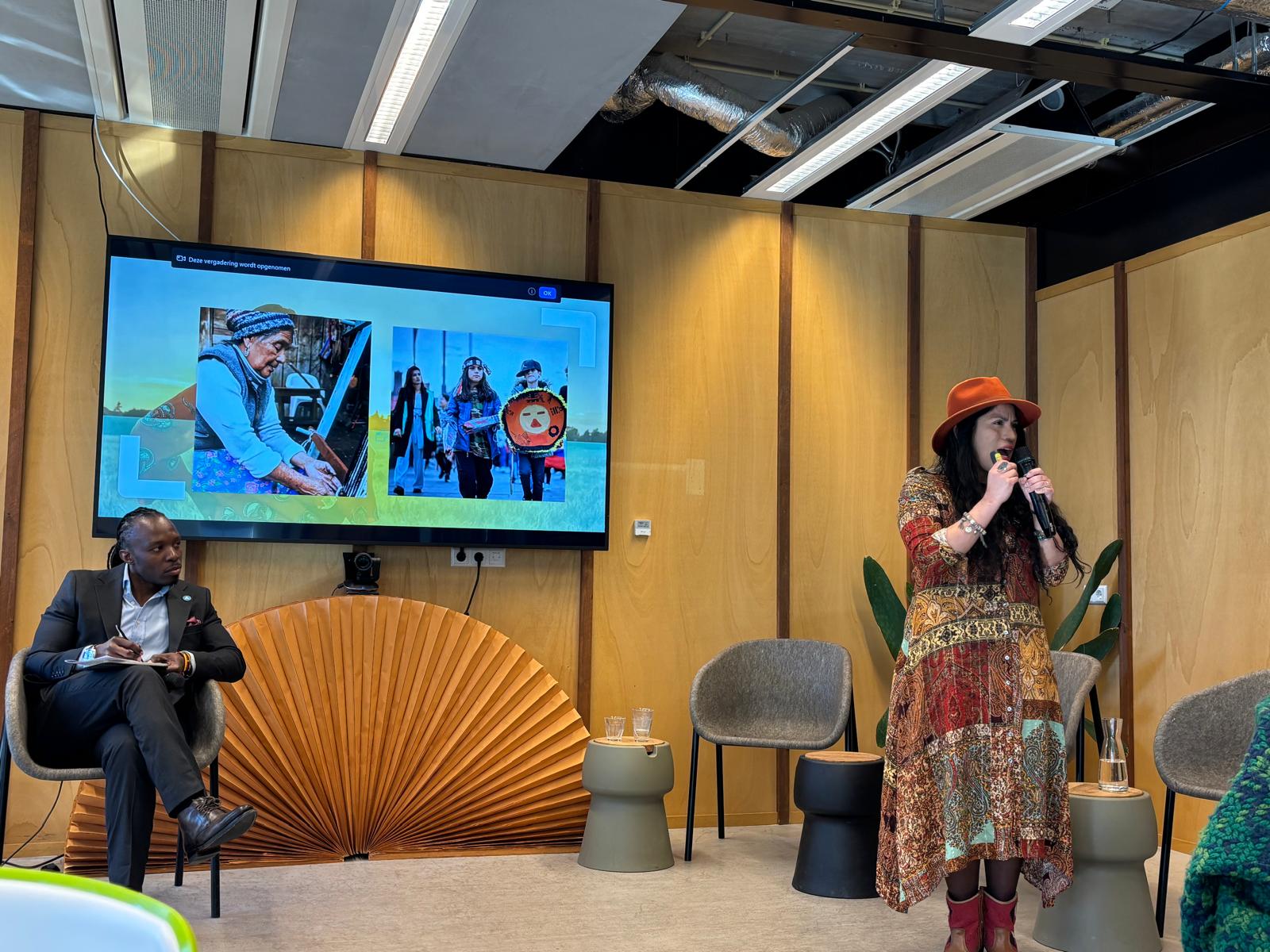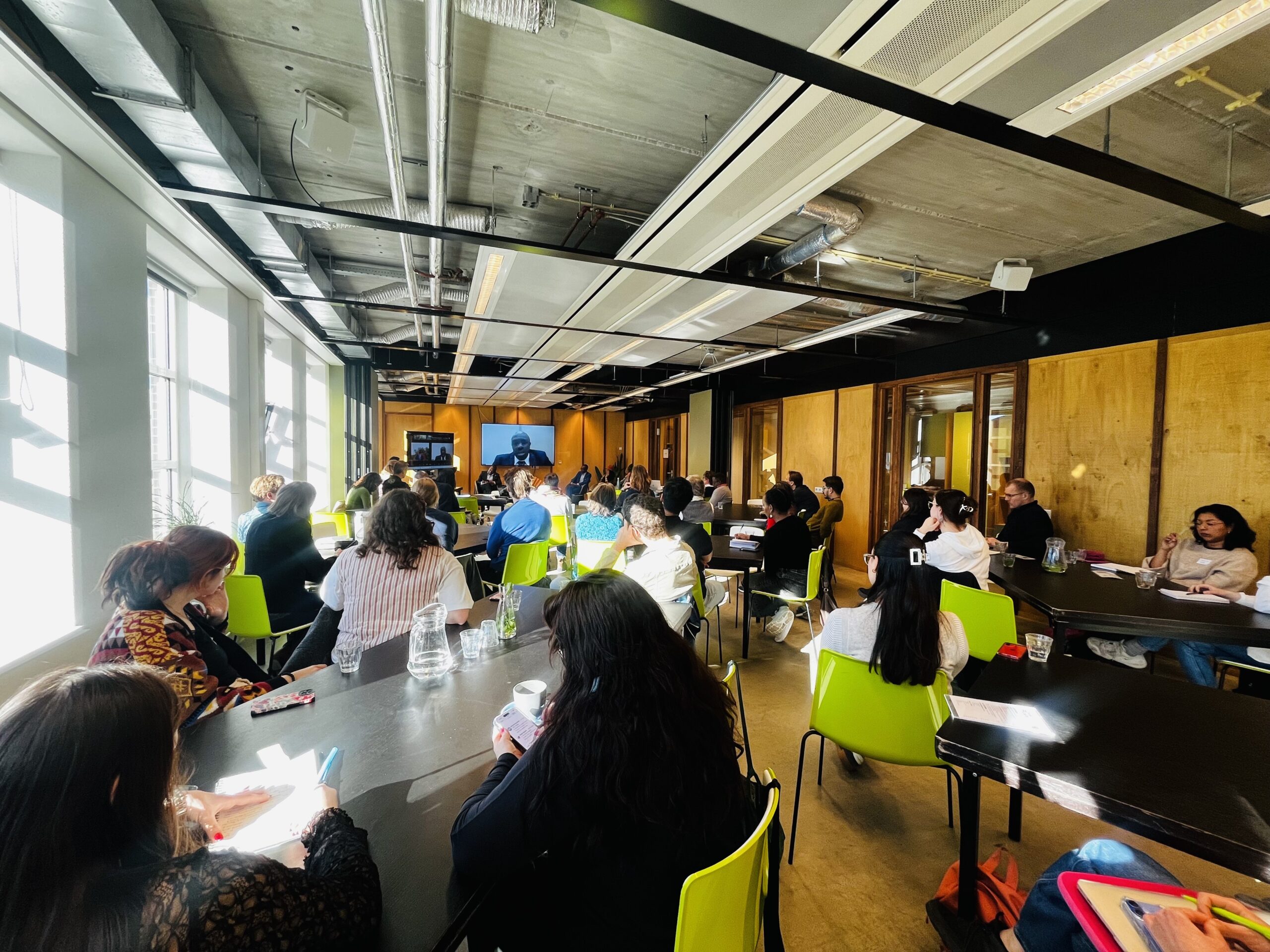
Collective action
The path to climate justice is filled with challenges, from shrinking civic space to systemic barriers that prevent marginalised communities from actively participating in decision-making. Addressing these issues requires collective reflection, resilience, and commitment to fostering change.
Speakers and Moderator
The event featured an insightful discussion with experts and advocates deeply engaged in climate justice:
- Chautuileo Tranamil, Co-Founder, Indigenous Liberation Movement
- Anyse Pereira, Programme Manager, and Climate, Biodiversity and Natural Resources Governance Consultant
- Charles Mpoyi, Tropenbos DRC and the Green Livelihoods Alliance
- Charles Peter Mwangi, Head of Programmes and Research at PACJA, the Pan-African Climate Justice Alliance
- Abigael Sein Ntawuasa, from Entarara/Osoit WRUA and Maasai community member
The session was moderated by:
- Jacob Baraza, Founder/CEO and Water & Climate Governance Expert at Water Practice International

Challenges in climate justice
One of the central themes of the discussion was the shrinking civic space and the lack of resources that hinder meaningful participation. Many communities, particularly indigenous groups in the Global South, struggle with limited access to knowledge, the internet, and necessary resources to advocate for themselves. Even when laws mandate the inclusion of indigenous communities in decision-making processes, the implementation often falls short. Policies may exist as symbolic gestures rather than genuine attempts at systemic change. For example, in Suriname, local communities were given only 90 days to make crucial decisions about their lands, without sufficient information or support, effectively undermining their ability to engage in the process meaningfully.
The Power of Language in Climate Justice
Language plays a crucial role in the fight for climate justice—it can either serve as a bridge or act as a barrier. As Chautuileo Tranamil, Co-Founder of the Indigenous Liberation Movement, emphasised, the way we discuss climate justice influences who can participate in the conversation.
“The language we use to talk about climate justice can either exclude or empower communities. We need to be aware of this and ensure accessibility in our discussions.”
Technical jargon and complex terminology often make it difficult for local and indigenous communities to engage in climate negotiations and advocacy. Making language more inclusive and ensuring that key concepts are communicated in an accessible way can help break down barriers and foster meaningful participation. 
Are Colonialism and Capitalism the Root Causes of Climate Injustice?
A question that emerged during the session was whether capitalism and colonialism are the fundamental drivers of climate injustice. Chautuileo noted that much of the world’s economic system prioritises unfair resource extraction over sustainable and equitable development. The resources that fuelled the historical development of the Global North continue to be sourced from the Global South, often without regard for the long-term consequences on local communities and ecosystems.
“How can we get out of this system where our development comes at the cost of another’s? We won’t be able to get rid of the existing systems unless we organise ourselves and bring change from within” – Chautuileo Tranamil
What Works: Solutions and Best Practices
Despite the challenges, the event also highlighted effective strategies for advancing climate justice:
- Empowering local communities through advocacy and capacity building. Charles Mpoyi emphasised that advocacy efforts are more effective when local communities, especially women, are actively involved in decision-making processes.
- Creating alliances and partnerships. Collaboration across sectors and locations strengthens advocacy efforts and ensures diverse perspectives are included.
- Ensuring equitable access to climate relief funding. Charles Mwangi pointed out that relief funding must be distributed fairly, ensuring that those most affected by climate change receive the support they need.
- Adapting strategies to local contexts. Climate activism takes different forms depending on regional realities. While Fridays for Future protests have been successful in Europe, similar approaches may not be as effective in Africa, where school attendance is not universal.
Key Takeaways for Future Action
Several crucial insights emerged from the discussions, drawing attention to the importance of inclusive and meaningful participation in climate justice efforts:
- Overcoming language barriers: Keeping communication simple and accessible helps bridge gaps between communities and decision-makers.
- Policy translation: Policies must be transformed into actionable frameworks that respect land ownership and community voices.
- The importance of procedural justice: Affected communities must be given the opportunity to shape their own stories instead of having external narratives imposed upon them.
Moving Forward: Strengthening the Climate Justice Movement
This event served as a powerful reminder that climate justice is about more than just policy, it is about people, power, and participation. By sharing experiences, challenging systemic injustices, and fostering collaboration, we can continue to push for a more inclusive and equitable climate movement.
The Hague Humanity Hub’s Climate Justice Hub and Partos remain committed to bringing together changemakers from various sectors to foster dialogue, share knowledge, and facilitate collaboration. If you are interested in being part of this dynamic community, send an email to climate@humanityhub.nl or Anna@partos.nl We look forward to welcoming you into the conversation and working together towards a just and sustainable future. 